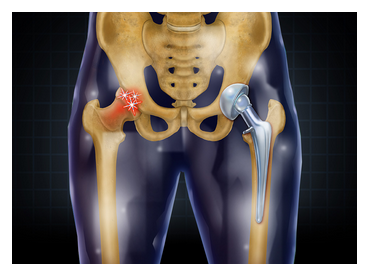- Home
- Editorial
- News
- Practice Guidelines
- Anesthesiology Guidelines
- Cancer Guidelines
- Cardiac Sciences Guidelines
- Critical Care Guidelines
- Dentistry Guidelines
- Dermatology Guidelines
- Diabetes and Endo Guidelines
- Diagnostics Guidelines
- ENT Guidelines
- Featured Practice Guidelines
- Gastroenterology Guidelines
- Geriatrics Guidelines
- Medicine Guidelines
- Nephrology Guidelines
- Neurosciences Guidelines
- Obs and Gynae Guidelines
- Ophthalmology Guidelines
- Orthopaedics Guidelines
- Paediatrics Guidelines
- Psychiatry Guidelines
- Pulmonology Guidelines
- Radiology Guidelines
- Surgery Guidelines
- Urology Guidelines
Hip and knee replacements may last as long as 25 years: Lancet

Results of a global study about the success rate of Hip and knee replacements are highly encouraging.
Musculoskeletal Research Unit at the University of Bristol has found that eight out of ten total knee replacements and six out of ten total hip replacements will still be in place after 25 years. The researchers reached this conclusion after reviewing thousands of case studies going back 25 years across six countries, generalisable survival data is now available for the first time to estimate how long hip and knee replacements are likely to last.
The findings of researchers have been published in The Lancet.
Hip and knee replacements are two of the most common and effective forms of surgery. Yet even in the best-case scenarios, they will ultimately fail due to processes such as infection, fracture, normal wear and tear or reaction to wear particles. In many of these cases, patients require revision surgery which is more prone to failure, associated with poorer function and more expensive than primary surgery.
"Over two million hip and knee replacements have been performed in the UK since 2003 and patients often ask clinicians how long their hip or knee replacement will last, but until now, we have not had a generalisable answer." said lead author Dr Jonathan Evans, National Joint Registry Research Fellow and Clinical Research Fellow at the Bristol Medical School; Translational Health Sciences (THS), based at Southmead Hospital.
"Previous studies have been based on much smaller samples. At best, the NHS has only been able to say how long replacements are designed to last, rather than referring to actual evidence from multiple patients' experiences of joint replacement surgery. Given the improvement in technology and techniques in the last 25 years, we expect that hip or knee replacements put in today may last even longer."
Knowing how long a hip or knee replacement is likely to last is therefore key for patients, orthopaedic surgeons and commissioners when deciding whether surgery should be done and when. This will become increasingly relevant to more people given the longer life expectancy of a growing population.
A hip replacement principally consists of two components, one that replaces the ball and another that replaces the socket. There is variation in how these parts are fixed to the bone, as well as in the materials used to create the bearing (contact) surface. There are two main types of knee replacement used in the UK. A total knee (TKR) replaces all the patient's own joint surface whereas a unicondylar knee replacement (UKR) only replaces the damaged part of the knee. There is considerable variation in how long different designs of hip and knee replacements last and these factors were accounted for in Bristol's study.
A total of 150 case series (a type of research study) were reviewed relating to hip replacements and 33 relating to knee replacements, as well as six national joint replacement registries (large databases of all patients who have had a joint replacement) from Australia, Denmark, Finland, New Zealand, Norway and Sweden - countries which hold more than 15 years' worth of data.
This involved the reports of 215,676 people whose cases were followed up for 15 years after undergoing total hip replacements; 74,052 who were followed up for 20 years; and 51,359 who were followed up for 25 years.
Of the total hip replacements, 89 percent were found to last 15 years, 70 percent lasted 20 years, and 58 percent lasted 25 years.
With total knee replacements, the 15-year results related to 299,221 people who had total knee replacements (TKRs) and 7,714 who had unicondylar, or partial, knee replacements (UKRs); the 20-year results related to 88,532 TKRs and 3,935 UKRs; whilst the 25-year data related to 76,651 TKRs and 3,935 UKRs.
Ninety-three percent of total knee replacements (TKRs) and 77 percent of unicondylar knee replacements (UKRs) were found to last 15 years. Ninety percent of total knee replacements and 72 percent of unicondylar knee replacements were found to last 20 years. Eighty-two percent of TKRs and 70 percent of UKRs were seen to last 25 years.
Mr Michael Whitehouse, Reader in Trauma and Orthopaedics at the Bristol Medical School: THS and joint senior author on the studies feels this information is critical to understanding the long-term outcomes of joint replacement: he said "This information is incredibly useful to me as a researcher to understand the life course of people undergoing joint replacement. Additionally, as a clinician, it gives me the information that I need, to give my patients a reliable and evidence-based answer to one of the questions they consider most important when deciding whether it is the right time for them to have a joint replacement."
Dr Evans hopes that further studies will help advance understanding and improve outcomes for patients and medical practitioners internationally: "We would like to work together with all the other countries who hold long term data on hip or knee replacement survival to expand our understanding of the long-term outcomes of joint replacement."

Disclaimer: This site is primarily intended for healthcare professionals. Any content/information on this website does not replace the advice of medical and/or health professionals and should not be construed as medical/diagnostic advice/endorsement or prescription. Use of this site is subject to our terms of use, privacy policy, advertisement policy. © 2020 Minerva Medical Treatment Pvt Ltd